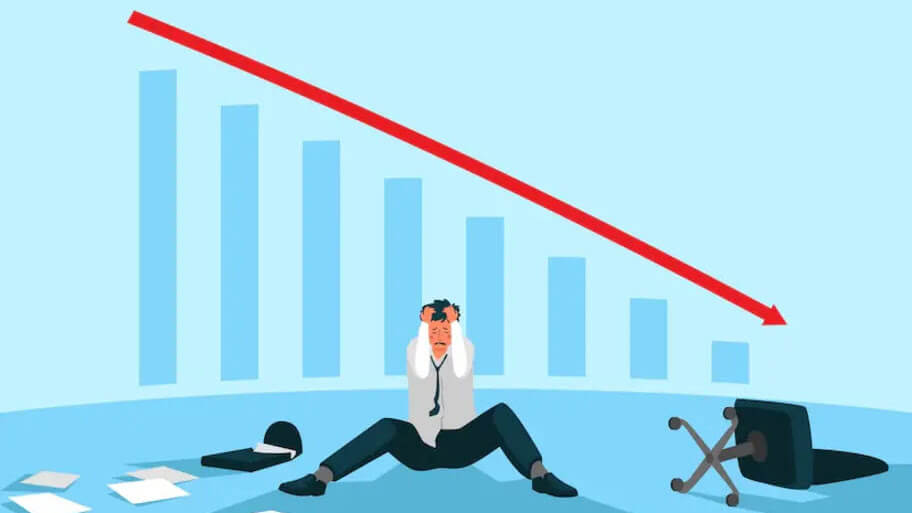Whether you’ve seen it or not, the economy isn’t doing so well right now. We are currently dealing with high inflation rates, a volatile property market, interest rate increases, and a stagnating stock market after two years of widespread devastation brought on by the pandemic. Oh, and if you’re like that sort of thing, a sizable cryptocurrency bubble appears to have burst. Even though nothing has been formally announced, it appears like another recession is imminent. For most of us, it’s a dismal thought.
Do not become alarmed if the United States (and other first-world nations) do enter an official recession. You can take a few steps to protect yourself and lessen your financial losses. Some of these actions can even be taken before a recession is formally declared. If the economy worsens in the future, other advice will be more effective. But first, let’s quickly explain a recession before discussing how to prepare for one.
What’s a Recession?
According to the traditional definition, a recession is two consecutive quarters of considerable economic contraction in a particular area. Alternatively, a GDP has stagnated or decreased for at least six months. There are frequently additional contributing elements, such as an increase in unemployment. Recessions are formally declared by the National Bureau of Economic Research, which serves as an oversight authority.
They claim that the definition of recession has been marginally modified in light of the last two years. The metric is no longer a two-quarter GDP drop. According to them, a recession is described as “a significant decline in economic activity spread across the economy, lasting more than a few months, normally visible in real GDP, real income, employment, industrial production, and wholesale-retail sales.”

Pixabay
Recession vs. Depression
A recession is not the same as a depression, even though the words rhyme and have similar meanings. Not in terms of money, however. Employment and production are often impacted during a recession. Families deviate from their usual spending patterns until circumstances begin to improve.
Conversely, depression is more pervasive (and can even spread globally). It is accompanied by extremely high unemployment rates and a general slowdown in economic activity. In plain English, depression occurs when a recession worsens and persists for three years or longer or spreads from one area to another across the globe.
The Great Downturn of the early 1930s was the last genuine depression in North America. Over three and a half years went by while the economy was in decline. Many families were still left to grapple with the effects of the Great Depression for many years.
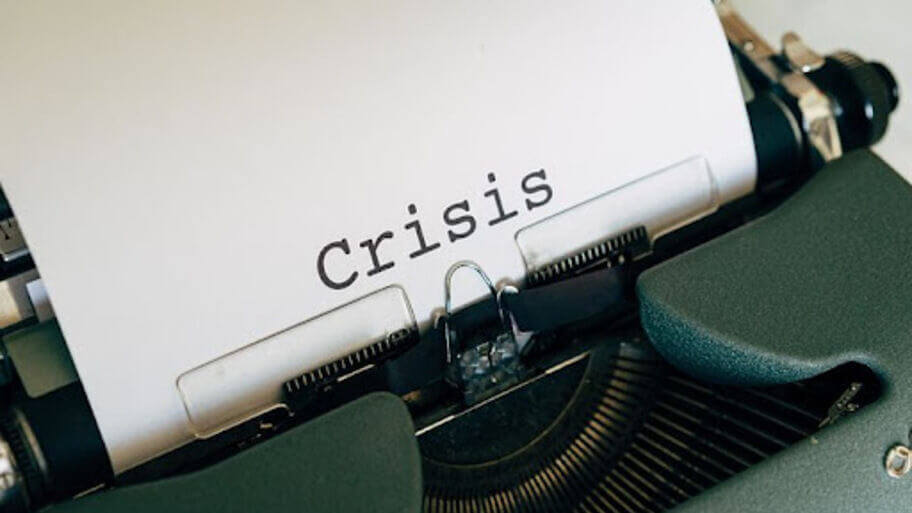
Analyze Your Spending Patterns
What can you do about a recession now that we’ve defined it? Unfortunately, you do not influence the Fed’s ability to produce money or determine interest rates. At significant financial institutions, it’s also likely impossible for you to influence policy and investment decisions. Therefore, even though you cannot prevent a recession from occurring, you can change your household’s budget as necessary. It’s not enjoyable, and you’ll have to make some compromises. The good news is that you can weather the storm and come out on the other side, ready to flourish.
Let’s go right to the point by examining your spending patterns closely. Look for areas where you may make minor adjustments or temporarily do without. Consider ordering a little less takeout or cutting back on your digital services. This can really build up over time. Your chances of getting a promotion or a side job during a recession are frequently slim. Try to spend a little less instead.
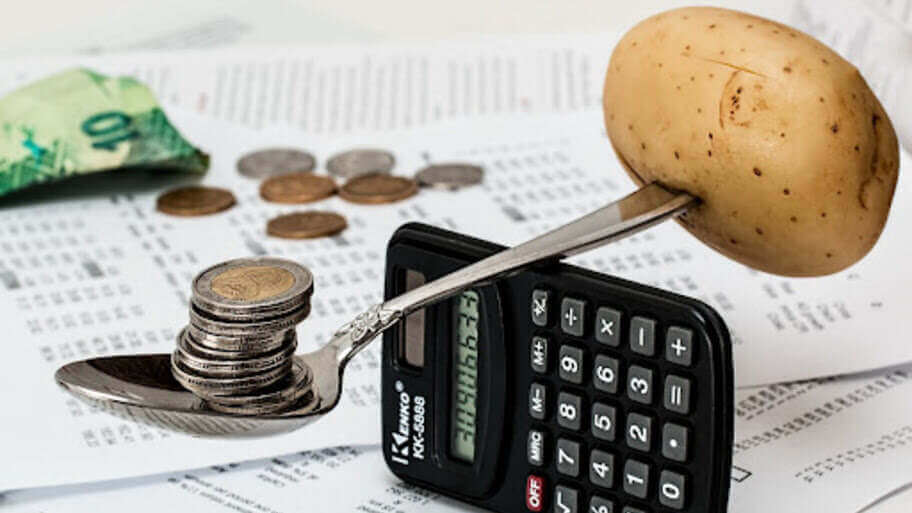
Focus on High-Interest Debt
There are several ways to deal with your debts. We’ve previously discussed several helpful debt repayment strategies on our website. Psychologically, some of them function better than others. Taking on the lesser debts first and seeing them go from the board can be energizing. But mathematically, there is only one correct response: first, pay off the obligation with the highest interest rate.
When there is a recession, this advice is doubly valid (or looming recession). You’ll spend hundreds or perhaps thousands more over time due to those high-interest rates. That amount is practically draining your budget of money. If you want to get the most out of every dollar, pay off your debt with the highest interest rate (perhaps your credit cards), and then move on to the debt with the next-highest cost (maybe a line of credit or a car loan?). Remember to continue making the minimum payments on all of your debts while you concentrate on the one with the highest cost.

Is it Possible to Raise Your Income?
You already know that increasing your income during a recession might be challenging. These gig economy gigs typically pay less or dry up, and your employer can also be making cuts to their expenses. This implies that raises, bonuses, and promotions might be harder to come by during recessions. That being said, you should still make an effort to increase your revenue.
Obtaining freelance work in fields in which you are already qualified is simpler than ever. Additionally, delivery and ride-sharing businesses will continue to exist. Finding a part-time job that merely delivers an extra paycheck isn’t as difficult to accept if your primary work offers solid health insurance and 401(k) benefits. Of course, you can always politely (and with sufficient justification) ask your manager for a pay increase, a promotion, or a change in a title at work. Helping them determine historic inflation rates will go a long way to building loyalty if they want to keep their finest workers.
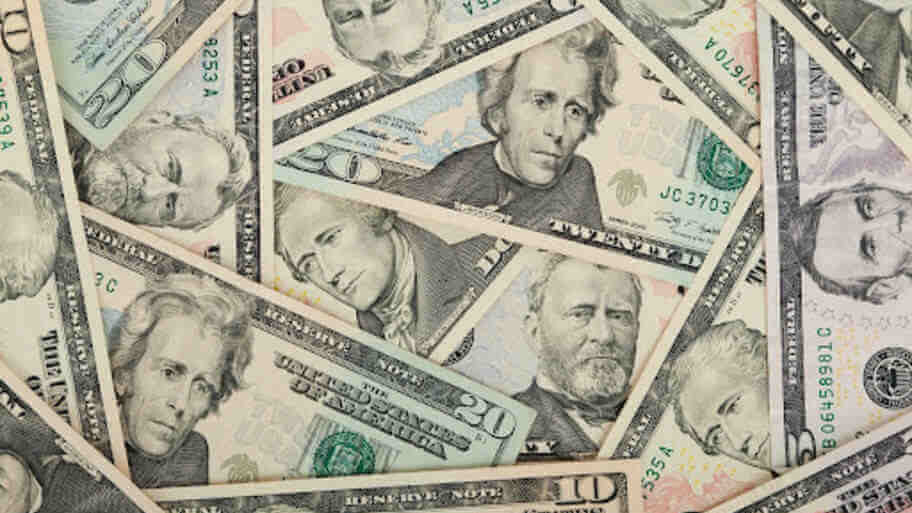
Put Your Career Development First
Even if you can’t obtain more revenue immediately, you can still make plans in advance. A recession is one of the ideal periods to concentrate on your career growth. Ask your manager about your position and see if they have any suggestions for training programs, credentials, or other tasks that will help you advance.
You may study a ton of additional talents online in the convenience of your own home. Your resume will be seen when businesses start hiring more heavily after the recession ends. Consider doing this as a financial investment in yourself that will pay off as the economy recovers.

Begin (or Continue) Investing
We know that watching the stock market might be discouraging during a recession. There are numerous downward-sloping graphs with red numerals. But don’t worry—it has happened before. Things always get better in the end. It can be difficult to observe if you already have a sizable sum of money saved in an IRA or 401(k). You could feel inclined to withdraw the cash and stow it away in your closet. Ride it out and resist the impulse. The value will increase once more.
A recession is actually the ideal moment to start retirement investing if you haven’t already. While setting aside money for investing when your budget is already tight may seem counterproductive, the fact is that equities are currently discounted. The market has experienced declines ranging from 10 to 50 percent, depending on the industry. These equities are currently essentially discounted. Therefore, start investing in a mutual fund or ETF straight away. Gains will come to you eventually.

Regarding Investments…
Here’s another piece of advice while we’re talking about investments. Don’t try to time the market or pick certain stocks. This is typically a losing strategy. You might invest all your funds in Tesla shares because you believe the company is poised to recover. However, that is just one company (run by a terminally online narcissist). Nothing can be predicted about it.
Instead, concentrate on index funds with lower risk. For instance, the NASDAQ or S&P 500 are stock indexes that include hundreds of different companies. Even if a few of them make bad choices, the rest should more than makeup for it. Unless Wall Street has a particularly horrible week, you probably won’t see your money evaporate. Bonds, precious metals (such as gold), and real estate investment through a Real Estate Investment Trust are other factors to consider (REIT).

Build An Emergency Fund
Yes, there is still another thing we should tell you to do with your money that isn’t an essential requirement like food, shelter, or transportation. However, whether there is a recession or not, having a sizeable emergency fund is a crucial financial tool. And don’t think having access to credit is a suitable replacement for having a rainy day fund; it’s not.
According to experts, you should have three to six months’ worth of spending in your emergency fund. That could seem like an impossible mountain to scale, especially if you start with nothing. However, you must begin somewhere, right? Start saving a little each time you receive a paycheck. Whether it only costs $10 or $20. Make it a routine. That money will increase soon.
But first, one more thing. When the high-interest loan is paid off, only then should you increase your emergency fund. Saving an additional $100 a month makes little sense if the interest on your credit card bill is $75 monthly.

Set a Budget (and Stick To It)
We should be upfront and dogmatic and say that you should already have a budget. It’s a crucial piece of financial equipment for each home. But if we’re sincere, we also realize that many people don’t stick to a budget. They essentially wing it from week to week and month to month, hoping they’ll make enough money to pay for expenditures as they arise. Although it’s a risky and unpleasant way to live, many people believe they don’t have many options.
It doesn’t matter how you choose to create your budget. Use one of the numerous practical budgeting software tools available, or stick with pen and paper. Tell the truth to yourself about all of your regular outgoings. Don’t forget to pay your DisneyPlus, Spotify, or Netflix payments. You’ll better understand your financial situation if you have a precise budget.
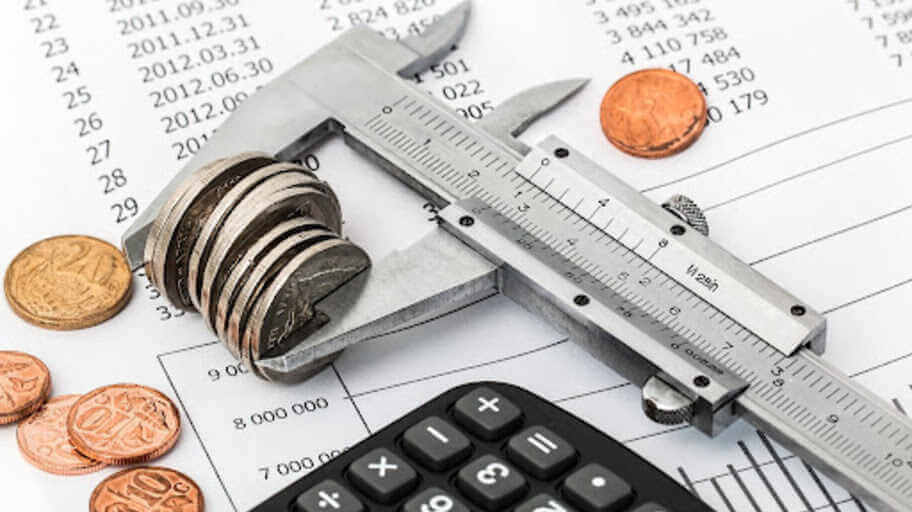
Don’t Worry
Perhaps the most challenging aspect of going through a recession is this. Every turn, there is a new headline about the stock market tanking, rising interest rates, record-high gas costs, and skyrocketing inflation. It’s simple to believe that the entire financial system is in danger of collapsing. But really, don’t freak out.
We can see from a simple glance at the history that these boom and bust cycles occur in waves. After ten years of substantial economic expansion, the market needed to fix itself. Yes, the pandemic was a nasty surprise that brought on much more financial strain. Whatever the case, recessions and even depressions are temporary. Stay the course and adhere to the advice above. You’ll be prepared to profit when the graphs once again begin to trend in the appropriate direction.

Conclusion
Even though we aren’t formally in a recession right now, it seems that way. The cost of goods and services has increased significantly, the stock market is flat, and people and businesses alike are becoming more frugal with their money. Many hard-working Americans are worried about their financial situation at the moment, and with good reason.
Recessions, nevertheless, don’t continue forever. Some prices will decrease once more. The stock market will rebound once more. And wages will (slowly) start increasing again. Watch your discretionary spending in the interim, concentrate on your professional objectives, and continue (or begin) your investment plans. The path to financial success is not a quick sprint but a long marathon. Recessions are only a minor portion of the total journey.

Featured Image: Freepik @ freepik
